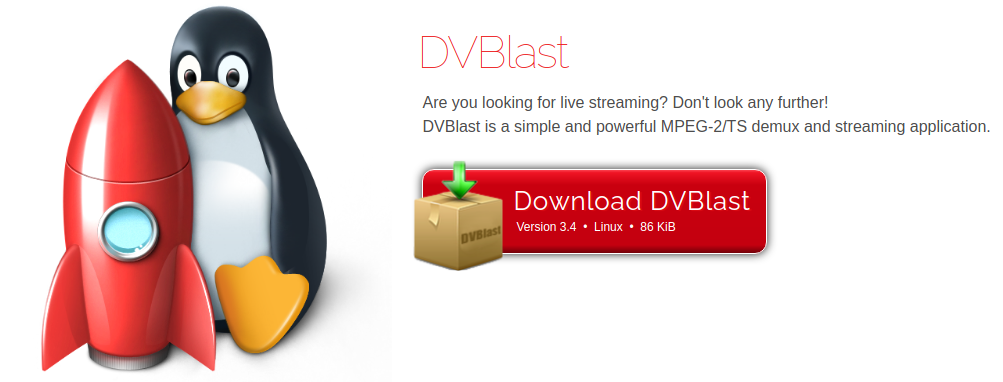Streaming is the method of delivering content where media content is produced and consumed continuously. It is most prevalent in video on demand and television services. This whole thing is performed with the help of some streaming application.
DVBlast is one of them I will discuss how to install it in the Ubuntu system.
DVBlast- An streaming application
As given on the Ubuntu manpage, DVBlast is a simple and powerful streaming application based on the linux-dvb API. It opens a DVB device, tunes it, places PID filters, configures a CAM module, and demultiplexes the packets to several RTP outputs.
It is designed to be the core of a custom IRD or CID, based on a PC with Linux-supported DVB cards. It is very lightweight and stable and designed for 24/7 operations.
You can read about DVBlast in detail on GitHub.
How to install DVBlast in Ubuntu
To install DVBlast first run the given command to update and upgrade packages by using –
sudo apt update && sudo apt upgrade -y
Next, use the given command to install DVBlast on your system –
sudo apt install dvblast
If asked for your confirmation press y and then enter.
Alternatively, you can download DVBlast from the VideoLAN website.

After downloading extract and follow the instructions to install a package from a .tar.bz2 package.
DVBlast input
DVBlast supports various input methods –
linux-dvbsupported cards (DVB-S, DVB-S2, DVB-C, DVB-T…) with or without CI interface- DVB-ASI cards (from Computer Modules or Deltacast)
- UDP or RTP, unicast or multicast, streams carrying a transport stream
DVBlast output
DVBlast outputs one or several RTP (real-time protocols streams) streams carrying transport streams with –
- Hardware or software PID filtering
- PID-based or service-based demultiplexing
- Optional descrambling via CAM device
- Optional DVB tables
- Optional PID and SID remapping
Conclusion
The DVBlast readme page on GitHub gives full information on how how to use it for streaming. Now for any query write us in the comments below.
